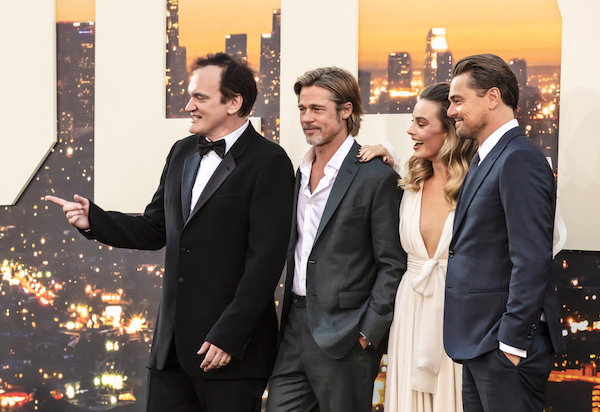SCOTUS Won’t Rule on Whether Lanham Act Applies to Celebrity Personas
“Although the courts have settled that a celebrity persona is a trademark for false endorsement purposes they have yet to make the logical extension to trademark infringement, leaving movie producers free to use celebrity personas without their consent.” – Paule McKenna petition
The U.S. Supreme Court on Tuesday denied a petition asking the justices to weigh in on whether the Lanham Act prohibits “the unauthorized use of a celebrity’s persona advertising third party brands with logos in a commercial motion picture as a trademark infringement?”
The case stems from a suit brought by the partner of Christopher Jones, an actor in the 1960s, who was referenced in the film Once Upon a Time . . . in Hollywood (the film), written and directed by Quentin Tarantino. Jones starred in the television series, The Legend of Jesse James, and movies including 3 in the Attic and Wild in the Streets.
According to the petition, the film’s stars, Leonardo DiCaprio and Brad Pitt, played fictionalized versions of Jones and his name appeared twice in the film and several times in promotional ads. Jones’ partner, the petitioner, was assigned the rights to the use of his likeness and first sued Sony in Los Angeles County Superior Court for trademark infringement, but Sony filed a motion to strike the complaint under California’s anti-SLAPP (strategic lawsuit against public participation) statute. The court agreed, dismissing the complaint “because the movie was protected speech and because petitioner failed to establish a probability of prevailing on the merits.”
At the California Court of Appeal, the appellate court said Jones’ name and likeness was not protected under the Lanham Act and that his name is not inherently distinctive.
In the SCOTUS petition, McKenna argued that the courts need guidance as to whether the Lanham Act applies “to commercial infringement on the trademark of celebrity persona.” The petition continued:
“Although the courts have settled that a celebrity persona is a trademark for false endorsement purposes they have yet to make the logical extension to trademark infringement, leaving movie producers free to use celebrity personas without their consent.”
While the California Court of Appeal cited ETW Corp. v. Jireh Publ’g, Inc. (6th Circuit, 2003) – which held that “as a general rule, a person’s image or likeness cannot function as a trademark” because it does not “perform the trademark function of designation” – as support for its holding, the petition noted that other circuits, and even the Sixth Circuit itself, have found Lanham Act violations in other similar cases. The petition cited Parks v. La Face Records, 329 F.3d 437, 447 (6th Cir. 2003); White v. Samsung Elecs. Am., Inc., 971 F.2d 1395, 1400 (9th Cir. 1992); Facenda v. N.F.L. Films, Inc., 542 F.3d 1007, 1018 (3d Cir. 2008); and Cairns v. Franklin Mint Co., 24 F. Supp. 2d 1013 (C.D. Cal. 1998) as examples, concluding that “[t]hose courts that view the celebrity’s persona as his trademark are right.” It added:
“The Lanham Act was intended to protect trademark holders from unauthorized use and this Court should clarify for all the lower courts, state and federal, that celebrities’ personas are their own property and not open for the abuse of commercial productions depicting them with obvious brand advertising.”
Sony did not file a response to the petition, and the Court denied certiorari today.
Eileen McDermott
Eileen McDermott is the Editor-in-Chief of IPWatchdog.com. Eileen is a veteran IP and legal journalist, and no stranger to the intellectual property world, having held editorial and managerial positions at […see more]







